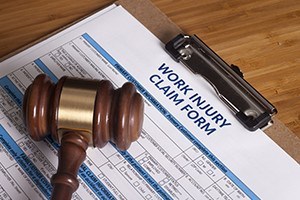The Going and Coming Rule
 Workers' Compensation Attorneys Guiding Boston Residents
Workers' Compensation Attorneys Guiding Boston ResidentsIn Massachusetts, the workers' compensation system was designed to provide benefits to employees who are hurt on the job. However, not all work-related injuries occur at the employer's place of business. In some cases, employees are hurt away from the site but still may be able to recover compensation. Under the going and coming rule, employees can only recover workers' compensation benefits for an injury or illness sustained away from the workplace in limited circumstances. Each case involving the going and coming rule needs to be assessed on an individual basis. At Pulgini & Norton, a Boston workers’ compensation lawyer can assist you with familiar with determining how this rule may apply.
The Going and Coming RuleGenerally, workers' compensation benefits are not available to employees who are injured while traveling to and from work under what is called "the going and coming rule." There are some exceptions to this rule, however. Injuries that happen when the injured employee's employer owns a right of passage or the premises, and the employee is required to use this property, may be compensable. For example, if you are required to park in the company parking lot and someone rear-ends you as you are leaving a spot, and you suffer a herniated disc, this is likely covered by workers' compensation.
Another exception exists if an employee must regularly travel away from the office in order to perform job tasks. For example, a massage therapist who must do on-site massages for clients and is paid for travel time may be compensated if she slips and falls while walking back to her car to go home from a client's house. One consideration in these types of cases is whether an employee is reimbursed for the cost of travel. Even a minor travel allowance or stipend can cause an injury to become compensable through the workers' compensation system.
An exception exists when the injury occurs while the employee is engaged in activities that benefit the employer, even if he or she is not technically on the clock. The rationale is that if there is a benefit to the employer that extends beyond showing up to work or leaving the workplace, the employee is furthering the employer's interests, and the employer and its insurer should bear the risk as well as receiving the benefit. However, when an employee's activities are purely personal, no benefits are available. For example, if you are hurt traveling to a work meeting that your employer holds off-site or a mandatory company picnic, these injuries may be compensable.
Similarly, a court has found that when an employee asked to drive the company truck in order to keep it in good condition for winter snow plowing, and an injury resulted during the truck’s use, the employee could recover workers' compensation benefits. In finding the employee's injuries compensable, the court noted that the employer expected the employee to be on call at all hours and that the employer wanted the truck to be used so that it would be in good condition for snow plowing. Although the employer also told the employee that driving the truck would allow him to avoid wear and tear on his car, a tangential benefit to the worker did not negate the benefit to the employer.
Explore Your Options with a Boston Workers’ Compensation LawyerIf you are involved in an accident while traveling to or from your job, you should consult an experienced workers' compensation lawyer who understands the nuances and exceptions of the going and coming rule. At Pulgini & Norton, our workers’ compensation attorneys represent Boston employees as well as people in Weymouth, Lowell, Braintree, and other Massachusetts cities. Call our workplace accident attorneys at 781-843-2200 or contact us via our online form for a free consultation.
 Pulgini & Norton, LLP Home
Pulgini & Norton, LLP Home








